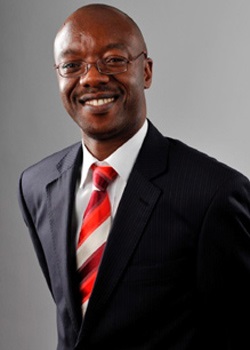
Research should not just be about innovation, but must also focus on social justice, writes Tawana Kupe
In the context of the fourth industrial revolution (4IR), universities worldwide are expected to be central actors in scientific, social and technological change in the drive for innovation and economic growth.
It is against this background that countries are strengthening their research-intensive universities to enhance their international competitiveness.
The strategy varies from allocating additional research resources to universities, to creating centres of excellence.
In South Africa, there needs to be far more commitment and policy certainty regarding the research mandate of our universities in national development.
It is important for the state to properly support research beyond our handful of research-intensive universities.
Universities that are not research-intensive, but have proven strengths in particular research niches, also need support to excel.
If a 4IR-targeted research boost is not extended, future-focused programmes will not be forthcoming.
This, in turn, will mean increasing numbers of students are inappropriately educated for the 4IR, compounded by the massification imperative in our universities, leaving the country with a growing number of unemployed graduates.
The same applies throughout Africa.
Peter Darvas, a senior economist in the Education Global Practice of the World Bank, reported in 2017 that enrolments in tertiary education in sub-Saharan Africa had grown from 400 000 in 1970 to about 7.2 million in 2013.
This growth has been accompanied by diversification of institutional types, especially the proliferation of private universities.
However, while private universities have ventured into science programmes, most of them mainly specialise in business and management programmes.
But this expanded growth is not adequately addressing the 4IR skills challenge.
Transdisciplinary research between the science, technology, engineering and mathematics (Stem) subjects and humanities is critical while navigating the 4IR.
This is manifested by the Stem movement at universities to match the growing demand for arts and humanities skills in Stem fields with the advent of disruptive technologies such as 3-D printing and robotics.
Based on this, Professor Joseph Aoun, president of Northeastern University in Boston, US, in his 2017 book Robot-Proof: Higher Education in the Age of Artificial Intelligence, lays out the framework for a new discipline and research field – humanics – which prepares students so they can compete in a labour market alongside smart machines.
Aoun identifies the following three graduate literacies as vital for navigating the 4IR – data literacy, technological literacy and human literacy.
Students require data literacy to make sense of big data and information flowing from devices; technological literacy to know how their machines work and navigate disruptive technologies; and human literacy is explored through the humanities regarding how to function optimally as human beings.
With the automation of work, artificial intelligence experts have observed that it is that which makes us human – our emotional intelligence and creativity – that is in demand in the transition to automation.
As Aoun writes: “As machines continue to surpass their old boundaries, human beings must also continue to hone their mental capacities, skills and technological knowledge.”
In response, universities worldwide are establishing 4IR-focused institutes and campuses with inter- and transdisciplinary academic and research programmes.
The Massachusetts Institute of Technology is planning a billion-dollar Quest for Intelligence College of Computing, which will combine artificial intelligence (AI), machine learning and data science, and bring together researchers in the fields of cognitive science, neuroscience and computer science.
As one of these research-intensive universities, the University of Pretoria (UP) launched the Future Africa Campus in March as a hub for national and international transdisciplinary research networks to maximise 4IR innovation and address the “wicked challenges” the world is facing.
Last year, UP launched Engineering 4.0 as a hub not only for smart cities and transport, but also to link its vast resources in technology and data sciences to other faculties.
These initiatives are stimulating the convergence of research and expertise – from agriculture, AI, autonomous vehicles and big data to cloud computing, logistics modelling, synthetic biology and bioprospecting.
We’re excited by the novel research our researchers are producing. An example is UP biochemist Dr Rethabile Tekane, who is using animation to enhance students’ understanding.
Systems geneticist Dr Eshchar Mizrachi is researching the genes or pathways impacting the formation of biomass in trees.
The nature of this research (forest tree biology and biotechnology) has broad implications for agricultural biotechnology involving the utilisation of lignocellulosic biomass.
The main driver of 4IR lies in the fusion of knowledge for economic advancement and, equally, for social justice.
Research expertise from a range of disciplines is required to co-create breakthroughs to transform society.
The foundation of this is a university community that is sustainable, well resourced, at the leading edge of research and future-oriented.
Kupe is vice-chancellor of the University of Pretoria




 Publications
Publications
 Partners
Partners








